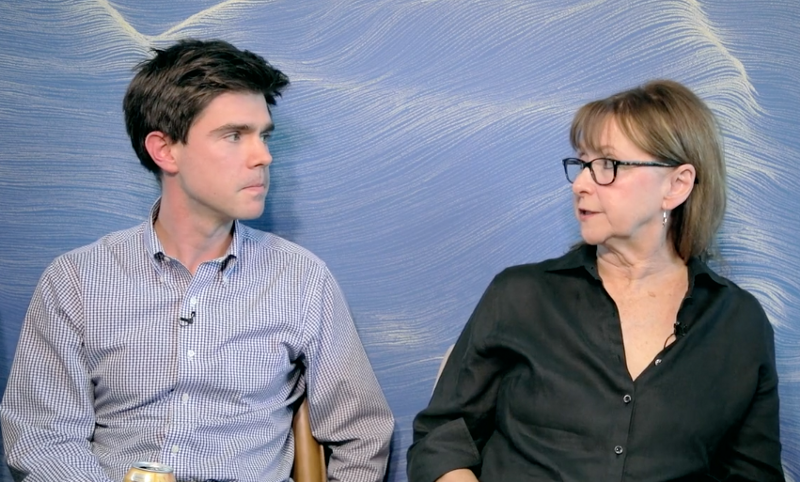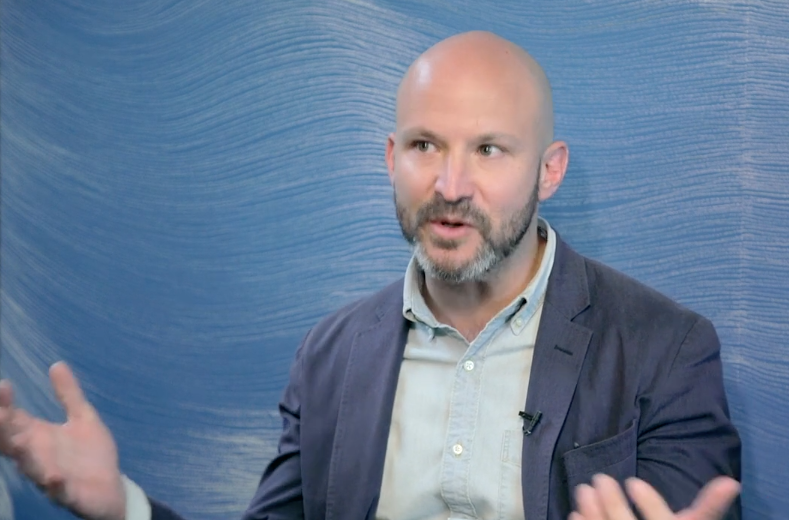The Wild West of Crypto Regulation
To understand what the smartest legal minds in the US are thinking about crypto, Terrence Yang sat down with Adam Sterling, Nancy Wojtas, & To better understand what the smartest legal minds in the US are thinking about crypto, Terrence Yang sat down with Adam Sterling (Berkeley Law), Nancy Woj

South Park Commons is a community that helps entrepreneurs and technologists freely learn and start ambitious projects. We bring together talented people to share ideas, explore directions, and realize opportunities that occur in an environment that helps people take risks. People don’t come to the commons to play it safe — we’re here to dive off the deep end.
As part of that journey, we bring in some of the best and brightest minds working on the cutting edge of tech to speak to our community. With our Crypto Speaker Series, we’re sharing lectures on blockchain and decentralization. Follow us here to get updated when we put out new content.

No one understands term sheets, cap tables, and convertible notes the first time they see them. While documentation and legal questions can be daunting to the first time entrepreneur, lawyers, VCs, and more experienced founders understand there is a well trodden path forward.
In crypto, that clarity is nonexistent. There is a real (and probably healthy) fear that founders operating in the US can do everything right and still face enforcement action by the SEC. For every one of the 1,600+ tokens in existence, there’s an opinion on what the current regulatory landscape looks like and how it might evolve.
To better understand what the smartest legal minds in the US are thinking about crypto, Terrence Yang, a crypto investor and ex-Wall St. securities lawyer, sat down with Adam Sterling, the Executive Director of the Berkeley Center for Law and Business and co-founder of Startup@BerkeleyLaw, Nancy Wojtas, a partner at Cooley LLP and the previous counsel to the Chairman of the SEC, and Juan Suarez, the VP of Legal at Coinbase.
*Nothing that follows or any of the comments in the video should be construed as legal advice. Our panelists are also not speaking on behalf of their organizations, and their opinions are their own. If you’re working on a blockchain project, hire a good firm that is experienced working on or around token sales and listen to their advice.
Even the experts don’t know what’s legal
According to Nancy, “top law firms in the US are not currently engaging in public token offerings.” Why? Because there is so much regulatory turmoil in the US. Between the SEC, FINRA, the IRS, and 50 states, we’re living in an incredibly fragmented structure and both entrepreneurs, crypto projects, and service providers need to be careful. What people perceive as regulation today is coming out of one-off speeches from the SEC and isolated enforcement actions, not clear policy guidelines.
When entrepreneurs are willing to do whatever it takes to comply with all these potential regulations across disparate agencies, shelling out millions of dollars in legal fees, they’re experiencing “death by 1000 cuts” whereby regulatory agencies in the US take too long and nitpick over the structure of their deals.

Juan from Coinbase wants regulation, saying “We need to know what is regulated and what the rules are. I care less about what the rule is than I do about knowing what the rule is.” If certain tokens can’t legally be sold on Coinbase, it’s not going to kill the business, but they need to understand what can and can’t be done.
Coinbase isn’t going to add new tokens until they understand what risk they are taking on as a company by doing so
As an academic, Adam doesn’t necessarily agree more regulation is the answer: “There is this concept that you all are familiar with — what is the difference between a security and a utility token? How do we define that? We probably wouldn’t have the same definition. Imagine the SEC trying to figure that out for everyone. I don’t think we want that.”
None of the panelists felt that regulation would be clear in the immediate future. It could take years before we fully understand how the US government and its enforcement agencies fully perceive tokens and crypto assets.
Should the SEC be the regulatory body?
“I love the SEC, but the SEC has no business being in the crypto world,” said Nancy. “They don’t understand crypto at all in my view, but on the other hand they are the ones that raise their hands and say they are in charge.”
There are some 4,000 people working at the SEC, and only 40 are dedicated to crypto. Many of them are from the baby boomer generation, as our most American politicians. Go to any of the major crypto conferences or join a telegram group and you’ll find that most of the investors, supporters, and founders of blockchain companies and organizations are millennials. That generational divide doesn’t help the marriage of innovation and regulation.

Adam believes that on a spectrum from regulatory lockdown to complete freedom, the SEC is closer to the middle and not at the extremes. He’s personally compared ads from the investment schemes in the 1920s that led to the formation of the SEC and some of the more blatant ICO schemes and seen striking similarities.
The sad thing is, there is fraud that exists, and the SEC exists to protect the average investor from those fraudsters. That clear path forward? For many in crypto, it has appeared that you need to hire potentially unscrupulous marketers to fundraise effectively… and that’s why we have securities laws.
Meanwhile, Juan works with arguably the most watched crypto related company in the world, Coinbase. While he was clear that he has no beef with the SEC, he’s frustrated by the pace of clarity: “We’re in a position that I can write a legal memo to the SEC with analysis on where a coin falls, and we can provide our own analysis on the credibility of the token, the dev team, state that the advertising around it is reasonable, but we’ve not gotten a productive response from them that makes us comfortable classifying a new token.”
Industry can pave the regulatory way
Many in the crypto world, our speakers included, believe that industry can pave the way for regulation. Adam held a class last semester where Law students, MBAs, and Engineering students all came together to study blockchain and create projects together. That marriage at the academic level can and should ripple out into industry.
In response to SEC comments late last year, the Venture Capital Working Group was formed to include a16z, USV, Perkins Coie, Cooley, McDermott Will & Emery, Adam Sterling, and Joe Grundfest and made a recommendation to the SEC on what regulation should look like. While that document was meant to be private, it has subsequently been leaked and you can read it in full here.
In summary, the document asks the SEC to create a “Safe Harbor” from securities laws for certain types of projects. This framework recommends that all tokens should not be immediately deemed securities, as previously suggested by the SEC. Presales of tokens will still fall under securities laws, but all those that achieve “full decentralization” or “full functionality” would be exempt. All of the panelists agreed that some form of this recommendation would be an incredible path forward, and they do believe that this is likely to be the way the SEC and other regulatory bodies move in the future.
What does this all mean to founders building blockchain projects that want to fundraise via token sales? In short, prepare to dive heavily into the legality of what you’re doing. Have a very clear understanding of what your project is, who your customers are, and how you want to serve them. That will help to cut down on your legal bills, and don’t assume you can launch your project and figure out the legalese down the line. Moving fast and breaking things may have worked in the past, but it doesn’t look like it’s going to play out well in the long term for anyone selling tokens.
Now What?
Check out the full panel here.
Learn more about South Park Commons here.
